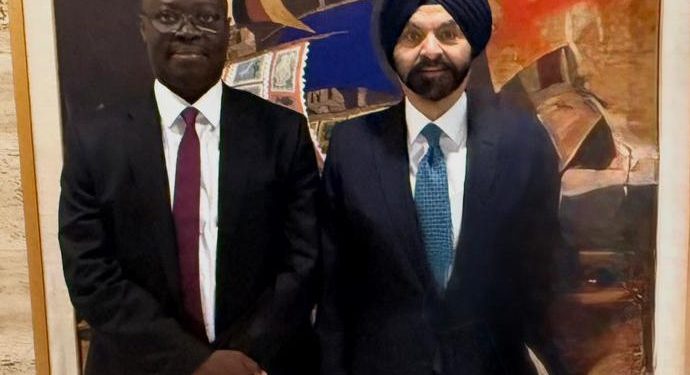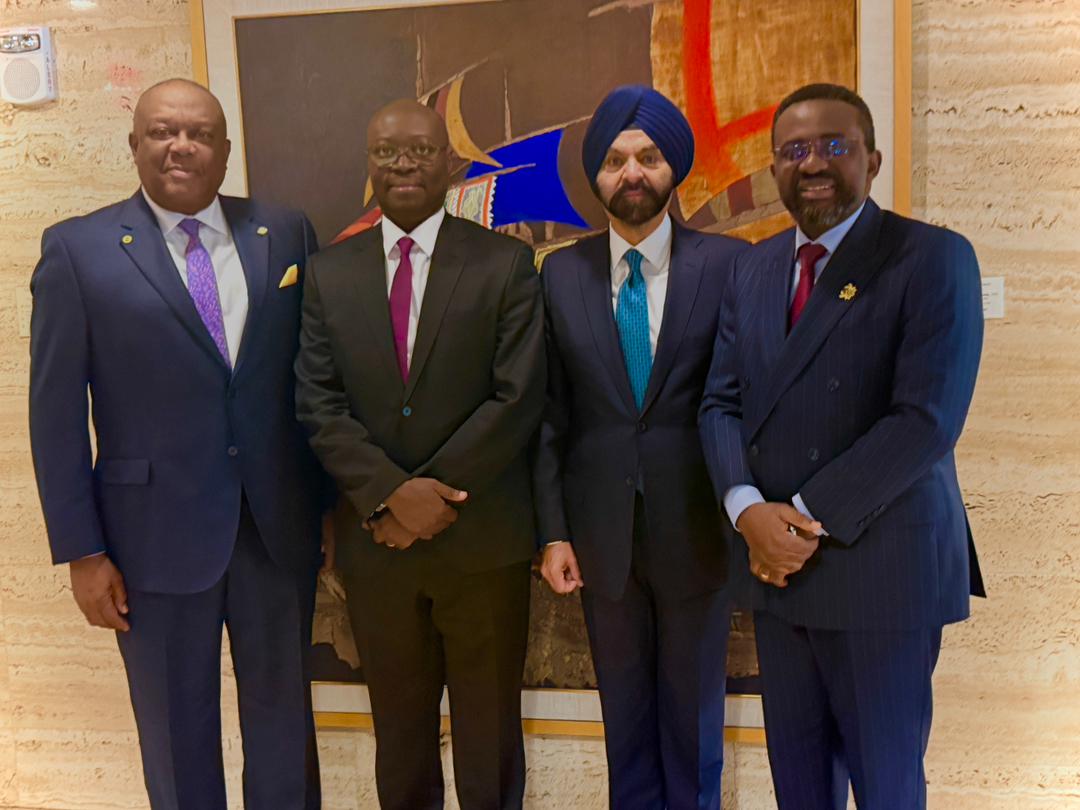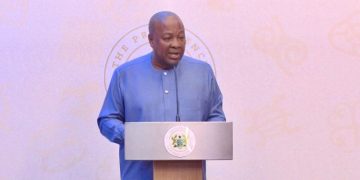- Ghana, World Bank Deepen Partnership to Boost Development Across Five Key Sectors
Ghana and the World Bank Group have signalled a new phase in their partnership, following a high-level meeting between Ghana’s Finance Minister, Dr. Cassiel Ato Forson, and World Bank Group President Ajay Banga on the sidelines of the 2025 IMF–World Bank Annual Meetings in Washington, D.C.
The discussions, described by both sides as “strategic and forward-looking”, focused on deepening support for Ghana’s economic recovery and structural transformation. The two leaders agreed to prioritise five key sectors, which are education, health, energy, roads, and agriculture, as anchors of a renewed cooperation framework aimed at accelerating growth and improving livelihoods.
Ghana’s engagement with the World Bank comes at a crucial juncture. The country is emerging from one of its most severe economic crises in decades, marked by currency depreciation, high inflation, and fiscal consolidation under the IMF’s $3-billion Extended Credit Facility (ECF).
For Dr. Forson, who has led the reforms of the economy from the fiscal side, pushing inflation to a single digit and stabilising the currency, the next chapter of Ghana’s reform journey must go beyond macroeconomic stabilisation toward inclusive, job-creating growth. The World Bank’s expanded portfolio is expected to align with this ambition, complementing IMF oversight with long-term investment in productivity-enhancing sectors.
“With this renewed collaboration, we are working together to accelerate Ghana’s journey toward a more resilient, inclusive, and sustainable economy,” Dr. Forson said after the meeting.
Mr. Banga, who has championed a “new playbook” for development finance, is said to have reiterated the World Bank’s commitment to Ghana’s reform and growth agenda, stressing that investments in human capital, energy access, and infrastructure remain key to unlocking private sector potential.
On the five Pillars of Partnership, especially when you take Education and Health, the World Bank’s next phase of support will likely deepen investment in learning outcomes, technical and vocational education, and primary healthcare delivery, two areas that have seen measurable success under the Health Systems Strengthening initiative. These interventions are central to building a skilled, productive workforce to drive long-term competitiveness.
In energy, the Bank’s involvement in Ghana’s energy sector, particularly through the Energy Sector Recovery Programme (ESRP), is being scaled up to address power distribution losses, enhance ECG’s metering systems, and reduce subsidies. The Bank’s new emphasis on performance-based financing aligns with its results-driven model unveiled in its recent “program-for-results” approach.
When it comes to roads and infrastructure, Dr. Forson is understood to have made a strong case for concessional and blended financing to fast-track critical transport infrastructure, particularly feeder and trade-facilitating roads that link industrial zones and agricultural corridors, keeping in mind the government’s flagship program, the Big Push. Improved logistics and connectivity remain pivotal to Ghana’s AfCFTA aspirations.
Finally, in Agriculture, the two teams agreed that the sector needs to receive renewed attention. The focus will be on improving value chains, irrigation systems, and access to credit for agribusinesses. With climate change intensifying risks, the Bank is expected to channel climate-smart funding and insurance instruments to protect farmers and stabilise rural livelihoods.
The World Bank currently manages a project portfolio exceeding $4 billion in Ghana, covering areas from financial inclusion to public sector reform. However, as both sides seek greater efficiency and impact, the new strategy aims to consolidate fragmented projects and emphasise measurable outcomes.
For the Dr Forson’s administration, deepening World Bank collaboration also signals continuity and credibility in Ghana’s international partnerships. The meeting follows recent progress under the IMF’s fifth review and the successful completion of domestic debt restructuring, moves that have improved investor sentiment and paved the way for new concessional inflows.
The meeting had in attendance the Bank of Ghana Governor Dr. Johnson Asiama and Ghana’s Ambassador to the United States, H.E. Victor Smith, which underscored the cross-institutional nature of Ghana’s development diplomacy. Their presence also reflects the growing nexus between fiscal, monetary, and diplomatic coordination in sustaining Ghana’s external partnerships.
As Ghana navigates post-IMF recovery, the synergy between macroeconomic reform and targeted World Bank investment could define the country’s path toward inclusive, private sector-led development.
In Washington, optimism was palpable. “Ghana’s story is one of resilience and renewal,” Dr Forson remarked. “Our partnership with the World Bank is not just about financing projects, it’s about transforming lives.”









